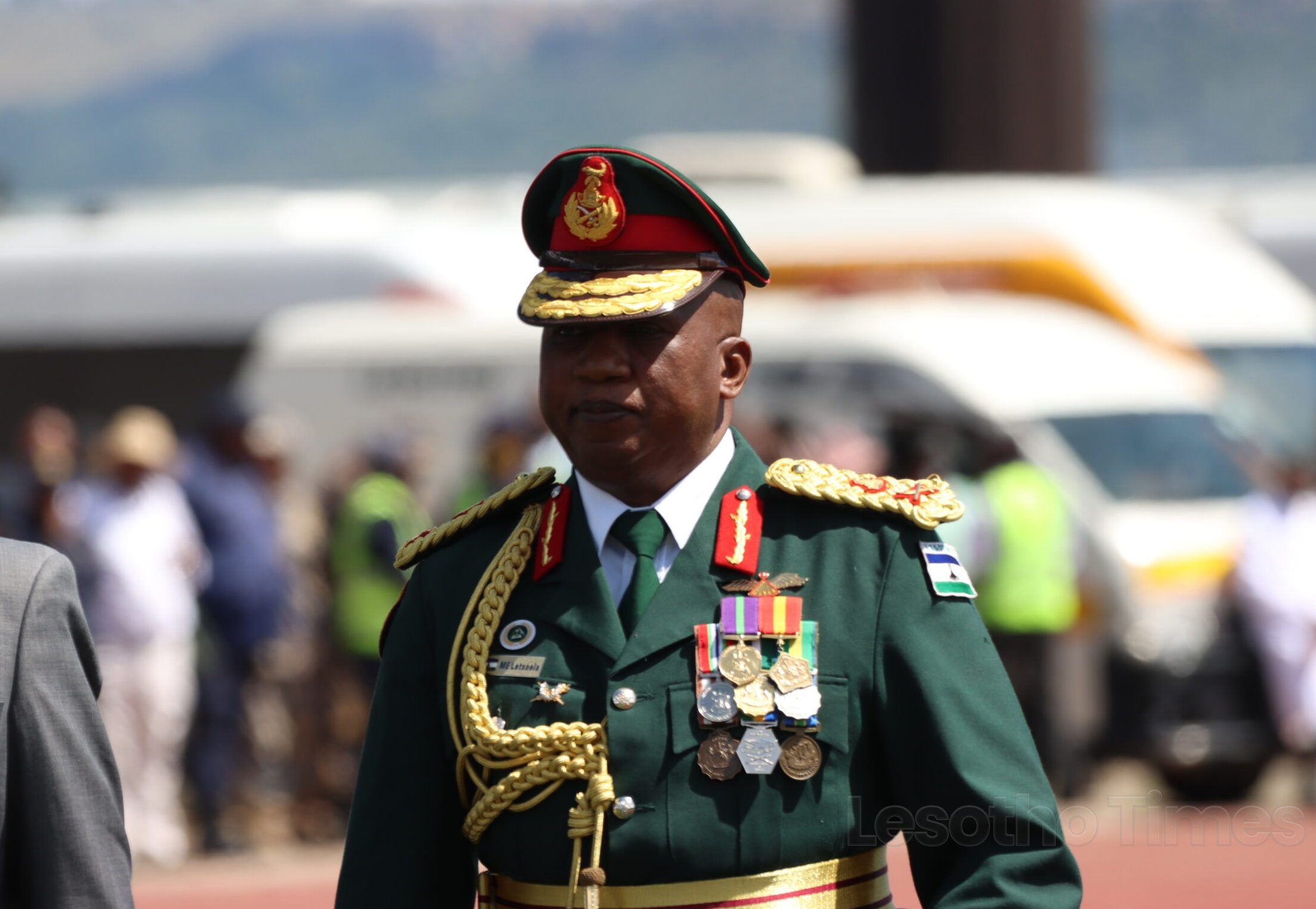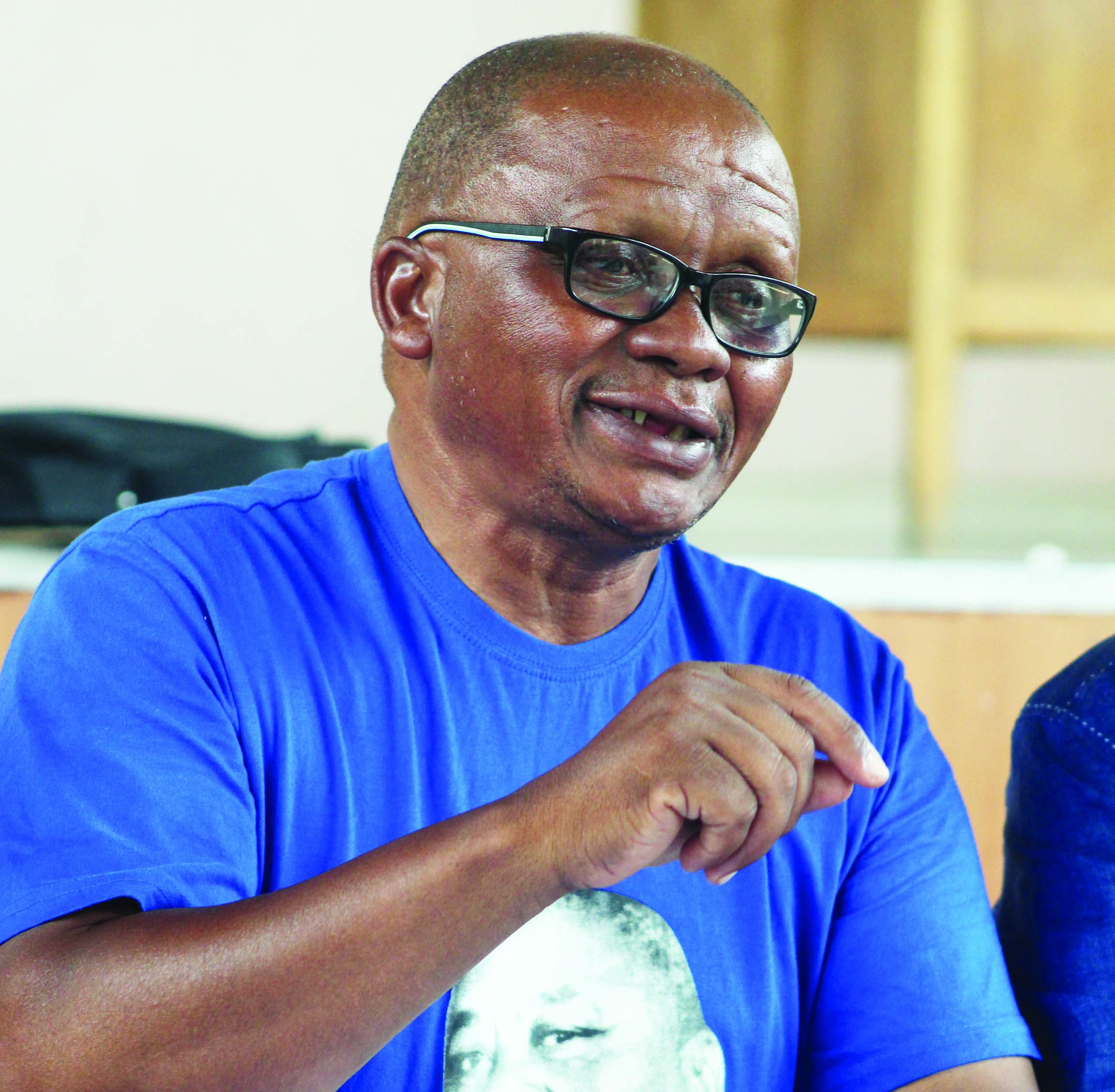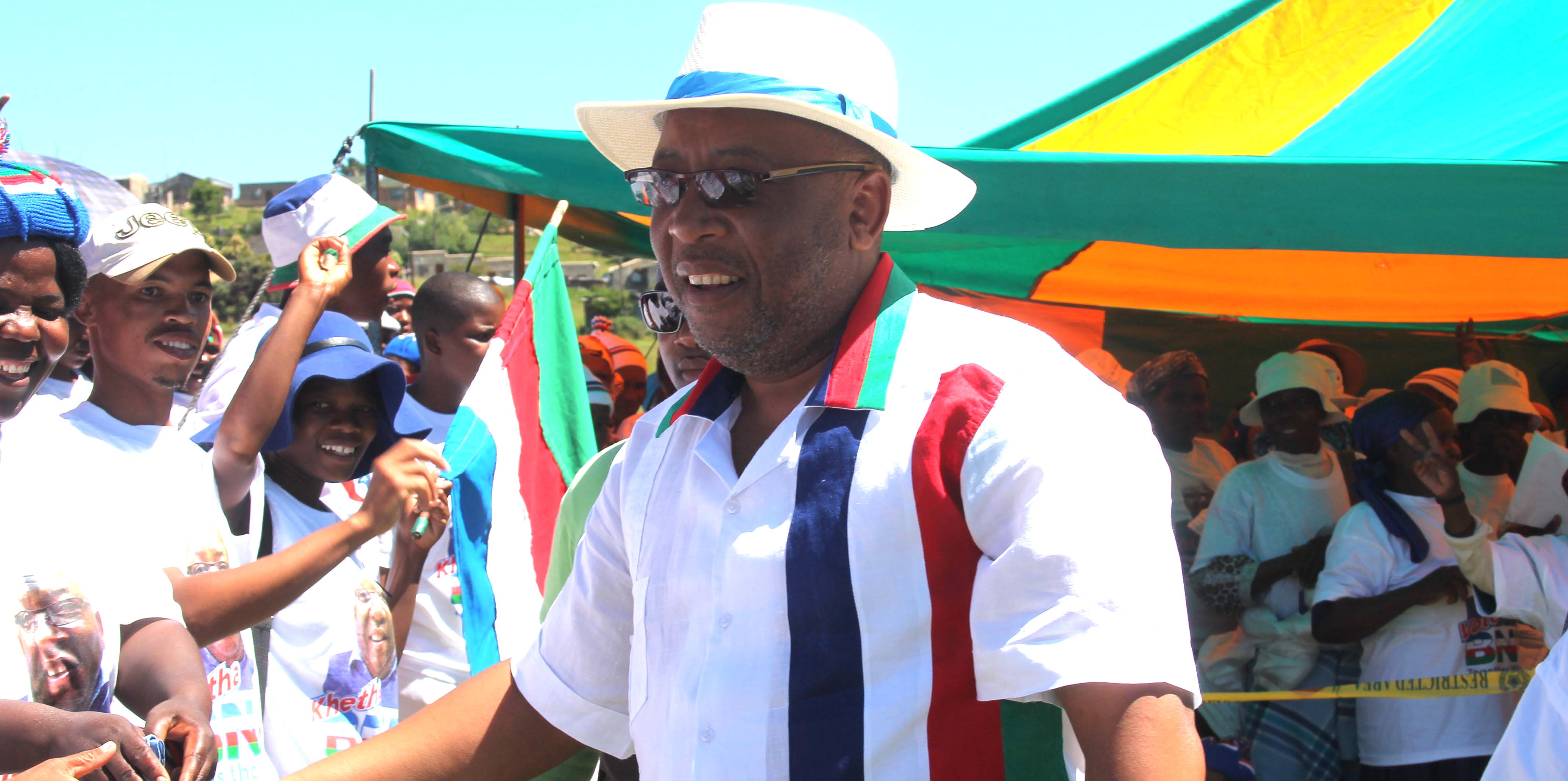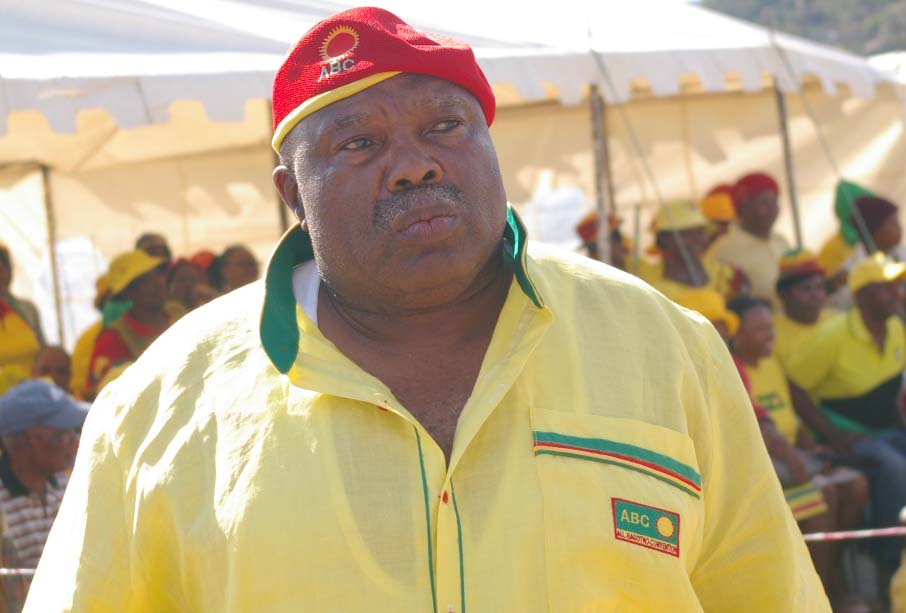
…As gvt insists Letsoela will retire in August
Mohloai Mpesi
THE government’s move to amend the Lesotho Defence Force (LDF) Act to extend the army commander’s retirement age to 62 has sparked division among Members of Parliament (MPs).
While some argue that the Lesotho Defence Force (Amendment) Bill 2025 requires thorough interrogation, others have dismissed it outright and demanded its withdrawal.
This is despite assurances from Minister in the Prime Minister’s Office, Limpho Tau, who tabled the controversial Bill in the National Assembly this week, that the changes will not apply to the current LDF commander, Lieutenant General Mojalefa Letsoela, who is 59.
Lt-Gen Letsoela was appointed LDF commander in January 2018 by then-Prime Minister Thomas Thabane. He reached the current retirement age of 55 in 2020 but was granted a two-year contract extension by Mr Thabane. His tenure was further extended by Prime Minister Moeketsi Majoro’s administration for an additional three years in 2022 and is set to end in August 2025.
Mr Tau stressed that the Bill was not intended to keep Lt-Gen Letsoela in office.
“The Bill does not include the current army commander because his employment ended in 2022. The government of Dr Majoro granted him three more years, which will end in August,” Mr Tau said.
He criticised those who, in his view, sensationalise and politicise military matters, urging them to refrain from doing so.
“Every time we discuss military issues, people become too sensational. I don’t understand why. After tabling this Bill, there were opinions that it was designed for specific individuals. This army belongs to Basotho and is controlled by the sitting government. This Bill is only intended to enhance human resource stability and security of tenure within the LDF.”
While presenting the Bill, Mr Tau said the government aims to extend the retirement age for commissioned officers from 55 to 62 years and for lower ranks from 45 to 55.
The Bill seeks to amend sections 23 and 39 of the Lesotho Defence Force Act 1996, last amended in 2002. It proposes raising the retirement age for the commander and Major General ranks from 55 to 62, Brigadier from 55 to 60, Colonel from 55 to 60, and Lieutenant Colonel from 55 to 59. Lower ranks would also see adjustments, with Boy (a rank for soldiers who ply their trade in the army but have not trained like other soldiers) from 45 to 58, Private from 48 to 55, and both Lance Corporal and Corporal from 45 to 55.
Mr Tau noted that the law would apply retrospectively to lower ranks but not to commissioned officers.
“This law affects all soldiers, from the lowest to the highest ranks. However, those already due for retirement will not be affected. The Bill is retrospective for lower ranks because the 2002 Amendment was flawed when it set retirement at 45 years.”
He argued that retiring soldiers at 45 and officers at 55 deprived the institution of experienced personnel who could mentor younger soldiers.
“The current LDF Act, read with the 2002 amendment, mandates non-commissioned soldiers to retire at 45 while officers retire at 55. This is concerning. A soldier retiring at 45 is unfairly dismissed at their peak, when they have family responsibilities and are still capable of serving. Similarly, retiring an officer at 55, when they have accumulated valuable experience, denies the army their knowledge and leadership.”
Mr Tau also said comparative studies conducted in neighbouring countries—South Africa, Botswana, and Zimbabwe—revealed that their military personnel retire at later ages than those in Lesotho.
“We examined how our neighbours handle military retirement and found that their soldiers and officers serve much longer,” he said.
Zimbabwe has just appointed a new army commander who is aged 72.
However, some MPs are sceptical of the Bill. Chair of Chairs in Parliament and Revolution for Prosperity (RFP) MP for Mokhethoaneng constituency, Mokhothu Makhalanyane, said he believes the Bill should be incorporated into the National Reforms Bill. He emphasized the importance of security sector stability given Lesotho’s history of political instability.
“Since the National Security Sector reforms discuss the establishment of a National Security Council, which includes all four security institutions, my expectation was that these issues would be addressed in a unified manner. What if the Lesotho Mounted Police Service (LMPS), National Security Service (NSS) and Lesotho Correctional Service (LCS) each introduce their own amendments? We come from a history where security forces did not work together, causing instability. We do not want to see a repeat of that,” he said.
He stressed the need for parliamentary committees to scrutinize the Bill, allowing both government and the LDF to present their cases.
“Democracy must prevail. People should be free to express their views. We need a stable government, which requires fairness, justice, and adherence to the rule of law. The government should present its case, the LDF should be heard, and the public should also have a say. Let’s allow democratic debate so that Parliament can make an informed decision based on facts,” he said.
Leader of the opposition and Democratic Congress (DC) leader, Mathibeli Mokhothu, echoed these concerns, warning that the Bill could exacerbate youth unemployment.
“The Lesotho Defence Force (Amendment) Bill 2025 proposes significant changes to military retirement ages. However, its implications must be critically examined against Lesotho’s severe youth unemployment crisis. The National Strategic Development Plan prioritizes economic growth and job creation, and the 2025/26 budget identifies youth unemployment as a major challenge. Military reforms should take these concerns into account. Raising retirement ages effectively blocks opportunities for young recruits,” Mr Mokhothu said.
RFP MP for Pela Tšoeu constituency, ‘Mope Khati, also called for a thorough review of the Bill.
“It is now up to us as MPs to research and determine whether this amendment will benefit the country. We need to address key questions: Where are the broader security sector reforms? Are they not a priority over this amendment? Is this retirement issue urgent? Is there evidence that the current law is insufficient? Are we unable to participate in regional military commitments due to younger officers? Is there proof that younger officers have led to poor military performance?” Mr Khati said.
Meanwhile, some opposition parties strongly oppose the Bill. Basotho National Party (BNP) leader Machesetsa Mofomobe called it a “diabolic amendment” designed to benefit a select few within the army.
“This amendment is diabolic. It is meant to create a cabal of privileged individuals in the army while hardworking servicemen suffer. Officers, who already earn more, will serve longer, while the majority of soldiers will not benefit,” Mr Mofomobe said.
Socialist Revolutionary (SR) leader, Teboho Mojapela, also opposed the Bill, arguing that the LDF Act should remain unchanged.
“This is an insult to the Basotho nation. The writing is on the wall. Youth unemployment is a crisis in this country. It is senseless to even consider such an amendment,” Advocate Mojapela said.







